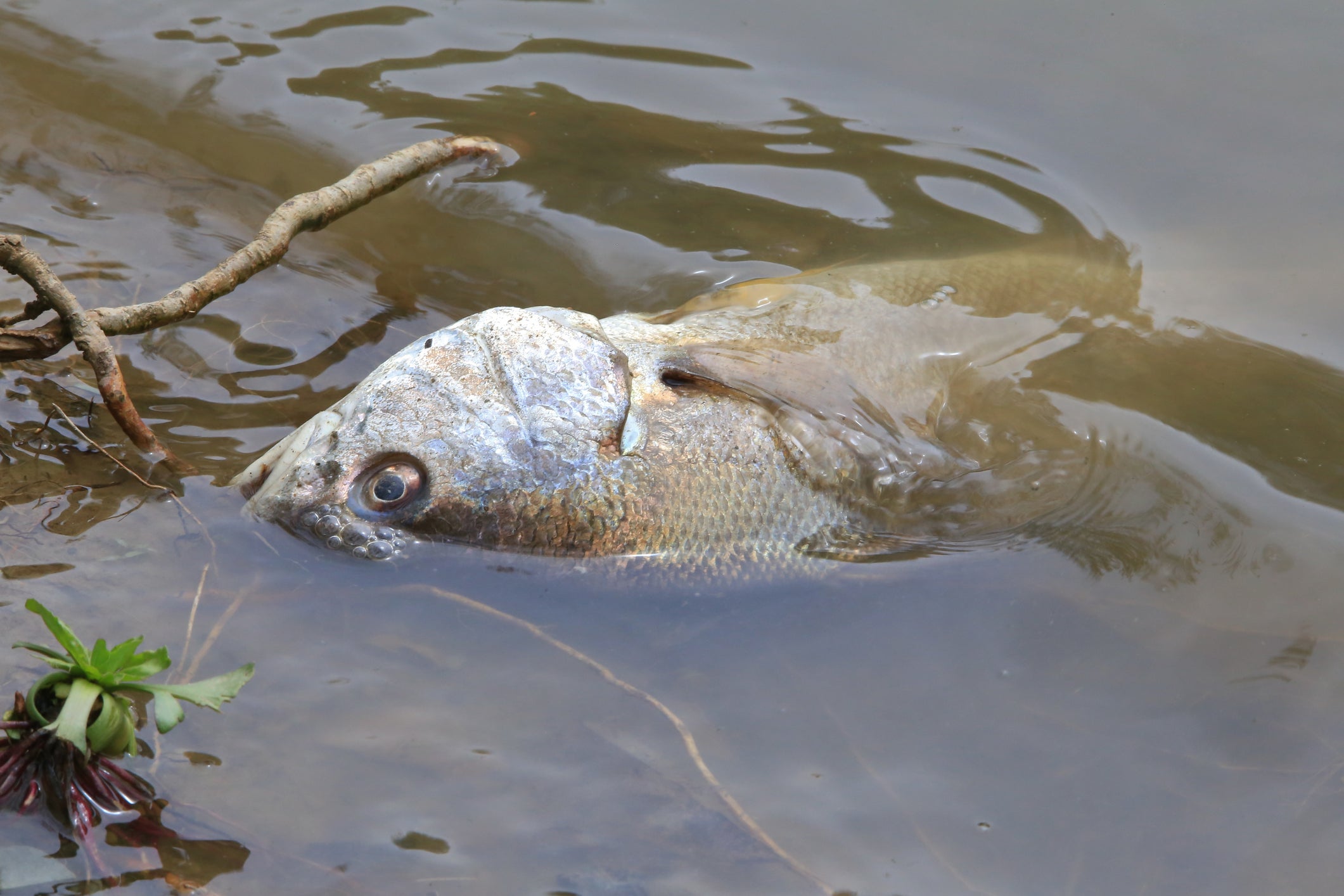
Wastewater from coal mining in Poland caused wide-scale degradation of the Oder River in August 2022, a report published by Greenpeace on Thursday claims.
Last summer, 360 tonnes of fish were found dead in the river, which flows between Poland and Germany. Research from Greenpeace claims that wastewater from Poland’s southern coal mining region of Silesia is to blame.
Higher water temperatures and increased salination allowed the algae prymnesium parvum to thrive in the river. This is deadly to both fish and shellfish.
At the time of the incident, the polish government blamed summer droughts for both increased temperatures and higher salination in the river due to lower water volume. Academics and members of the public blamed authorities for not acting for 17 days after thousands of fish washed onto river banks in Western Poland.
Greenpeace took samples to record the salination of various parts of the Oder River. They found that salt levels in the water increased dramatically when the river passed through the coal mining region of Silesia. The organisation believes that wastewater is being discarded into both the Oder River and the Vistula River, cautioning against a similar crisis occurring in the Vistula this summer.
EU supports conclusions
These conclusions are supported by an EU report released last month, which described the situation on the Oder River as “one of the largest ecological disasters in recent European river history”.
The EU report concludes that it is “almost certain” that aquatic life deaths were caused by a substantial toxic algal bloom. Report authors accept that summer droughts were likely a contributing factor, along with changes to river flow. However, they conclude that the high salinity was “probably due, at least partly, to discharges of industrial wastewater with high salt content for instance from mining activities”.
Report author Leszek Pazderski, professor in the Department of Analytical Chemistry and Applied Spectroscopy at Nicolaus Copernicus University in Torun, has requested the creation of national park reserves in especially vulnerable parts of the river. He has also called for more restrictive discharge regulations and improved filtration of wastewater from Silesian mines.



